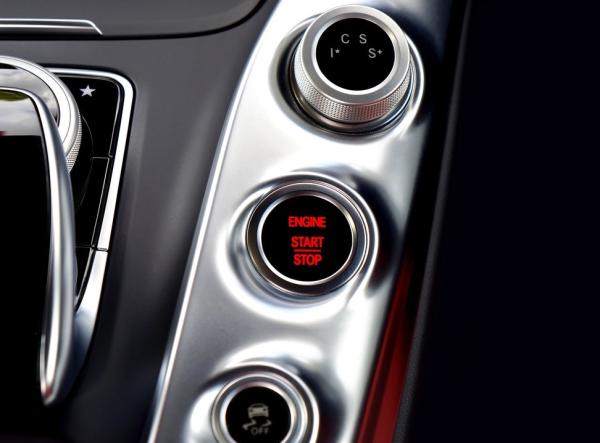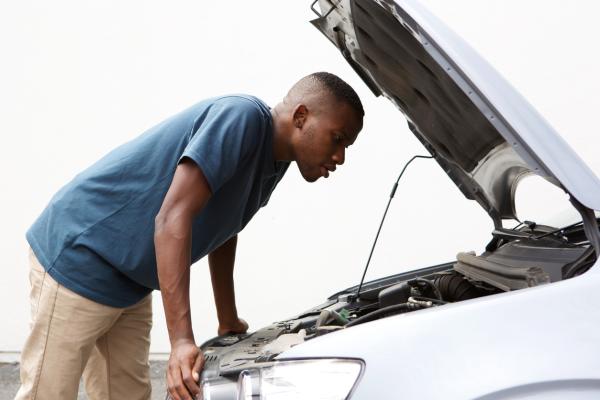Symptoms Of Bad Failing Starter


Most of the time, problems with starting your car are blamed on the battery. While this may be the likeliest culprit, the problem may also lie in your vehicle’s starter. How would you tell if the problem is related to the starter or any other electrical component of your vehicle? Firstly, you need to know that your starter has two parts. The primary motor starts your car’s engine by turning the crankshaft and the solenoid engages the drive gear. Although regular maintenance and servicing can keep your car in good condition, the starter may fail due to age, wear and tear. This oneHOWTO article will tell you about symptoms of bad failing starter, so that you can identify the problem and get it resolved accordingly.
Steps to follow:
Engine does not turn on
The most common symptom of a bad failing starter is that you turn the key and you see no reaction. An electronic key does not have a manual ignition switch, but when you engage the ignition, it should send signals to the starter. If the vehicle refuses to turn over when you turn the key or press the starter switch, it must be a problem with the starter. The issue may be due to a failed circuit. If that’s the case, the vehicle won’t start, no matter how many times you try to turn the key.
If the starter has not yet failed completely, you may hear some clicking sounds, but it won’t turn over. This is usually caused due to the motor or the starter solenoid being burnt out. It might be experiencing some electrical issue as well. Although this kind of problem may arise due to a dead battery as well, you have to check the other symptoms so you can determine which one is at fault.
Starter becomes active, but motor does not spin
When you turn on the ignition, you may hear the starter becoming active, but you can’t hear the sound of the motor crank. This might be a symptom of a mechanical issue with the starter. The problem is most probably lying in the gears connected with the flywheel. The gear must have stripped or it may have been dislodged against the car’s flywheel. Whatever the case, the engine will fail to turn over and you will have to get your starter replaced.
Freewheeling
Freewheeling takes place when you start the engine and you hear whining noises coming from the starter without any engine cranking. If you notice this symptom, it indicates that your car’s starter gear is not able to engage with its flywheel. This can be a serious situation and you would soon require a replacement job for your starter. The first step is to get your vehicle serviced as soon as possible.
Oil leak
The starter is usually located near the bottom of your vehicle. This means if there is an oil leak, it is likely to get drenched from other parts of the engine. A starter soaked in oil will have a shorter lifespan and will get damaged very soon. So, you should think about correcting the leakage immediately and replace the starter before any serious malfunction takes place. Oil leaks can be both an indicator and further cause of many engine problems.
Grinding noise while starting the motor
When you start the motor, you may hear a grinding noise, probably because the gears connecting the starter with the flywheel have worn out. The grinding that you hear can also take place inside your car’s starter motor. When you hear this sound, you should get on alert and call your mechanic immediately. If you ignore this noise, it may cause serious damage to your engine’s flywheel which will be an expensive repair to deal with afterwards.

Clicking sound from the starter
Clicking sound coming from the starter as you turn on the key can be due to low battery, but it may also indicate that the starter is not receiving full signal to get started. A damaged starter may also cause a clicking sound when key is turned on in its ignition system.
Smell while starting the motor
The mechanical system consists of your starter that gets ignited with electricity. Sometimes, the starter gets overheated due to continual supply of power. If this happens, the motor of the starter does not get a chance to turn off and you may discover a burning smell coming from under your engine. Overheating may have caused short circuit or blown fuse in your electrics, or there might be a problem in your car’s ignition switch. Whatever the problem is, you should contact a professional mechanic immediately and get the issue resolved.
Smoke when you start the engine
When you see smoke, it can be a serious cause for immediate action. It indicates a variety of problems with the starting circuit or the starter. When you see smoke, it usually means that the starter is drawing too much of power through the electricity supply. There can be several reasons for this. The starter might have shorted, or it must be operating for too long without resting. You may see smoke if there is some connection problem too. If you see smoke, it is recommended to stop the vehicle immediately and call for a tow. Running an overheated vehicle can result in fatal consequences.
Starter remains on even after starting the engine
The circuit should close and discontinue supplying power to the motor as you release the key and start the engine. But if the starter still stays on after igniting the engine, the main contacts with the starter must have welded together in a closed position. If this happens, the starter gets stuck in the turned on position and causes damage to the circuit, starter relay and transmission flywheel. That’s why it is important to get the issue addressed immediately by a professional mechanic.
Abnormal issues while starting the vehicle
When the starter works properly, it sends power to the engine every time you engage it. But the starter may get damaged due to exposure to heat, debris, dirt and other issues, and its sporadic operation may get affected significantly. When you try to start your vehicle, it should activate immediately. If not, then there is most likely a problem with the starter. Sometimes, the problem may not be with the starter, but with the wire connection that might have become dirty due to exposure to the elements.
Abnormal functioning of the solenoid
Solenoid is responsible for transmitting electrical current to the starter motor from the vehicle’s battery. When you turn the key, it also allows cranking by pushing the starter into the flywheel. When the solenoid starts malfunctioning, it is most likely that the starter will fail to work properly as well. When you turn your key and nothing takes place, try to jiggle the transmission gearshift level. If the engine still does not crank, then there is some problem with the solenoid, and you need to get it fixed as soon as possible.
Any problem with your vehicle’s starter is almost impossible to ignore. Often because your car simply won't start. As soon as you experience any freewheeling, noise, smell, smoke or starter malfunctioning, you should immediately get on alert and seek professional help from an expert mechanic. By doing this, you can avoid any serious problems coming your way down the road.
If you want to read similar articles to Symptoms Of Bad Failing Starter, we recommend you visit our Car Maintenance and Repair category.





